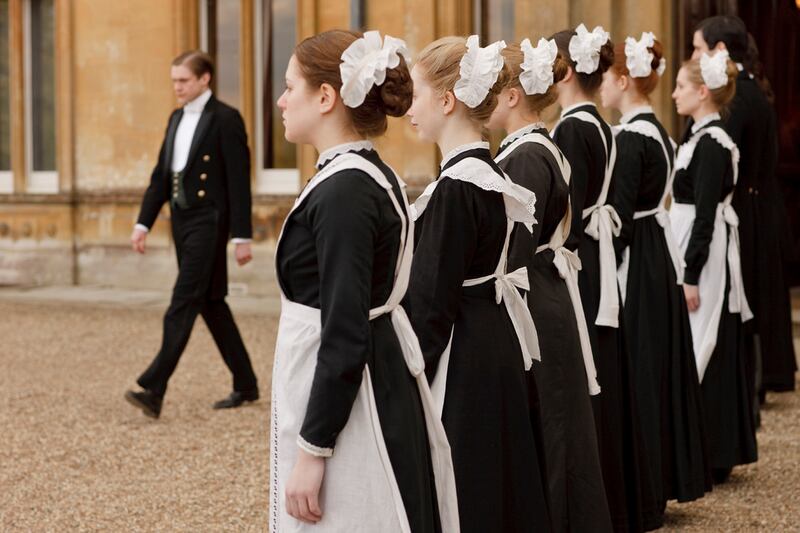As an actor, Julian Fellowes always made a convincing toff. The upper-class vowels were unforced, and the confident manner suggested good breeding and an expensive education. So what if he was balding and a tad paunchy? To casting directors, Fellowes was an obvious choice for an aristocratic Scottish landowner or even a British royal.
Small wonder. By birth, he belongs to the same gilded world that he’s brought to the screen as an actor, producer, director, and screenwriter. The themes of class and the stately home—think Gosford Park or Downton Abbey—run through the 62-year-old’s career like a thread of the finest Harris tweed.
And why bother to look further for inspiration? After all, this is a world the public loves to revisit. It was Gosford Park that won Fellowes a screenwriting Oscar in 2002, and the first series of Downton Abbey has pulled in 11 Emmy nominations. In Britain, where a second series began this weekend, the show reached one in four of the adult population. (American fans will have to wait till Jan. 8 for the second season, to be shown on PBS.)
OK, he isn’t quite drawing on memory, preferring to re-create the life of the early 20th century, a golden age of deference and privilege (and hardship: the latest series shows Downton Abbey serving as a military hospital in World War I). Storylines interweave or contrast the lives of the tailcoated aristocrats and the supporting tribe of uniformed flunkeys who inhabit the basement or attics.
Some critics are sniffy about clunky or familiar plots. Others deplore what’s seen as the show's misplaced nostalgia and accuse Fellowes of glorying in outdated social distinctions. In the words of historian A. N.Wilson, writing in The Daily Mail: “It gives me the impression that the great British public have learned no lessons about the iniquity of class prejudice in the past 100 years.”
But audiences and producers can’t get enough of costume drama in the grand Fellowes manner. Long gone are his days as a jobbing actor. He’s now working on a TV retelling of the Titanic story to mark the centenary in 2012 of the liner’s sinking, one more opportunity to examine stratified belle époque society under pressure.

And his admirers point to a rare talent for dialogue and plotting that has nothing to do with class. “It is Julian’s writing that has taken the expressly British country-house genre into the mainstream,” says Gareth Neame, producer of Downton Abbey. “He is something of a guru on this piece of society, and there is no one else on the planet who could write in this field with the same level of accomplishment."
Fellowes himself looks every inch the latter-day product of privilege, from the understated tailoring of the suits to the chunky signet ring. His manner is jovial, and stories are told with polished assurance: part performer, part toff. The son of a diplomat, he was educated at Ampleforth, the private school favored by upper-crust British Catholics, and at Cambridge before a stint at drama school in the 1970s.
Yet by his own admission, he is not quite the high-society insider. He defines his own place in the social order as "rock bottom of the top," posh enough, perhaps, for acceptance in the grandest company but without the title, the pillared mansion, or the generous private income—a quasi-outsider with an observer’s perspective.
Two bestselling novels testify to the same talent for transforming a national weakness for the intricacies of the class system into a marketable literary commodity. His first, Snobs, tells the story of a middle-class girl marrying into the upper ranks of the aristocracy; his second, Past Imperfect, is set among the ball-going crowd of his own youth.
These days reality and screen role have nicely converged. Home is a 17th-century manor house in deepest Dorset. His wife is the niece of an earl who once worked as a lady-in-waiting to a royal duchess. Better still, his own success was rewarded with a title. Last year he took his seat as a Conservative in the House of Lords. No doubt Baron Fellowes of West Stafford looks just the part.
Correction: An earlier version of this article identified Downton Abbey as a BBC show. It airs on Britain's ITV.






